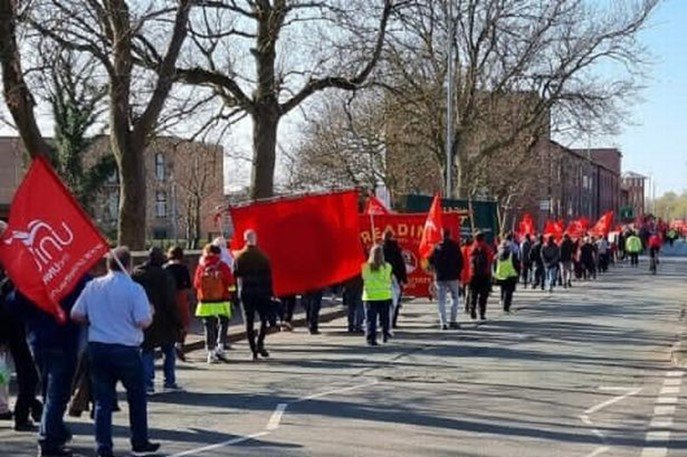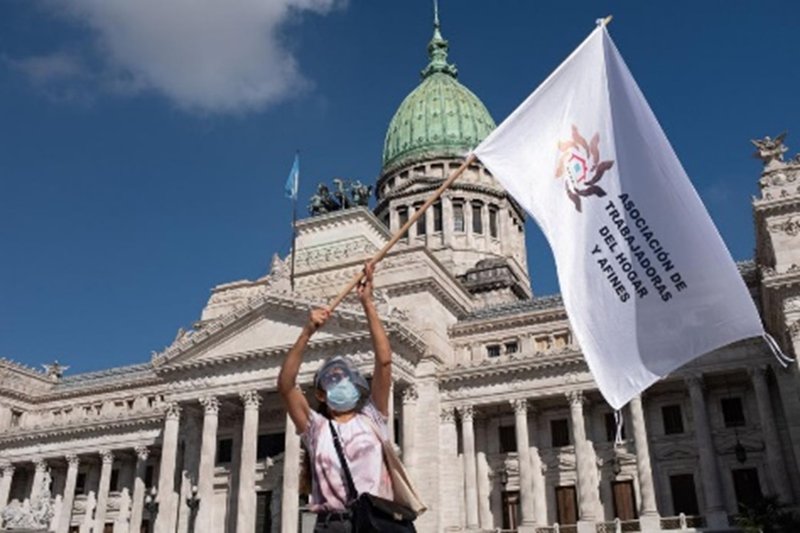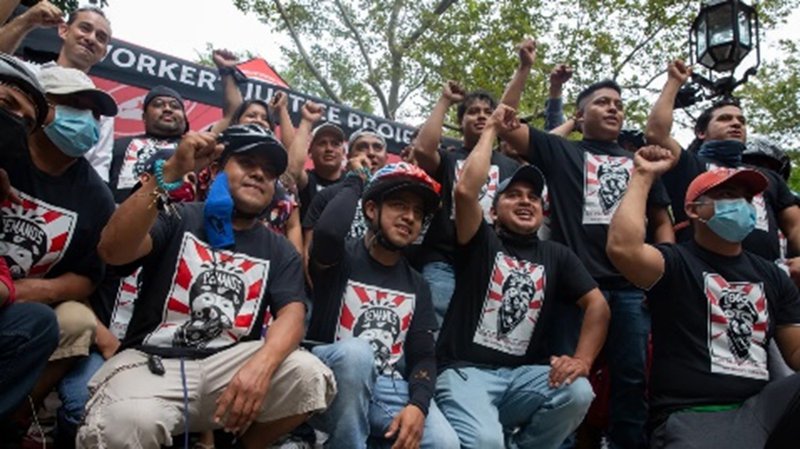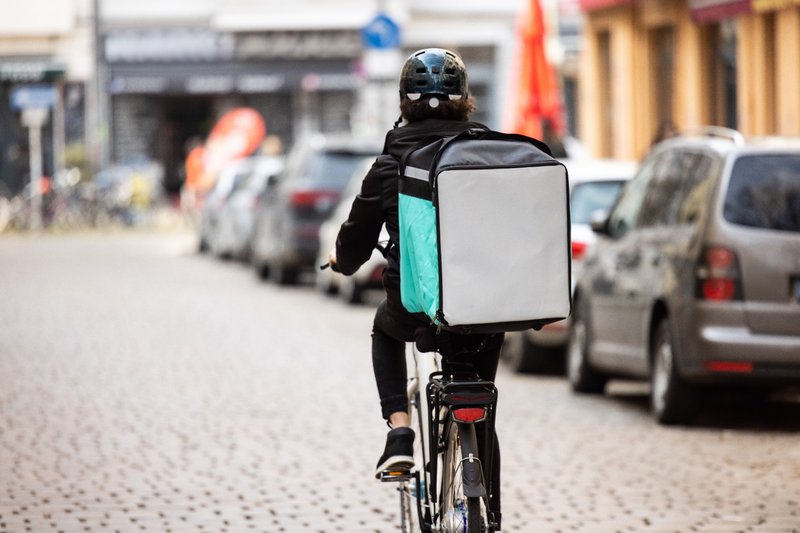Ian spoke in detail about the long running dispute between bus drivers and GO North West in Greater Manchester in early 2021. The dispute centred around management’s attempted use of ‘fire and rehire’ provisions to force through changes to working practices that would extend working hours and reduce sick pay for those with fewer than five years’ service. These changes were opposed by Unite members and organisers who argued that they were unjustified in the economic context and would be unfair to new starters (which was particularly short-sighted at a time of increasing labour shortages).
The GO North West strike was protracted and high-profile, and strikers sought to visibly disrupt key routes and restrict access to the main bus depots in the area, and undertook public marches which in turn would get the attention of local politicians and media outlets. Unite also sought to reach out to and build solidarity with other unions and local grassroots campaigners through virtual events and (socially distanced) public protests and demonstrations. Although the unions agreed concessions on efficiency savings, the main proposal to effectively downgrade pay and conditions through the controversial use of ‘fire and rehire’ procedures were abandoned after nearly eleven weeks of sustained industrial action.
Bus drivers march through the streets of Manchester

Source: Unite North West, reproduced by the Manchester Evening News (5/4/2021). Accessed at: https://www.manchestereveningnews.co.uk/news/greater-manchester-news/bus-drivers-strike-weeks-march-20325094
Lorena gave insights into the battle for decent work among domestic workers in Argentina which has focused on the recognition of domestic workers as ‘employees’ within the legal framework, and the recognition of the domestic, caring, and cleaning tasks they undertake as ‘real’ work. Key challenges for domestic workers are the high levels of informality (just 25% of domestic workers are formal employees), and the difficulties that isolated and often un-unionised domestic workers face in challenging exploitative working practices.
While many families continued to rely heavily on domestic workers during the pandemic and some continued to pay wages during lockdown, others were dismissed without notice or severance pay, and because of their informal status and low working hours were ineligible for state protections. There was also some speculation in the media that domestic workers were partly responsible for having transmitted the virus from household to household (as was the case in the UK where care workers were blamed for spreading covid-19 within the community), which completely overlooks the deeper issues of precariousness that meant many domestic workers could not afford to stay at home, and the chronic lack of appropriate PPE and testing facilities that might have helped curbed the spread of the virus.
A key development in the struggle for decent work has been the turn to organising and mobilising among a historically vulnerable and un-unionised workforce, which is 98,5% female. As the lockdown in Buenos Aires continued late into 2020, a number of workers began meeting and protesting outside Argentina’s legislative building in Buenos Aires. Although there is a main domestic workers’ union at national level and many associations at local level, the protests resulted in the creation of a new labour association called Asociación de Trabajadoras del Hogar y Afines (Association of Household and Related Workers) which now has around 300 members and counting.
A recent article by Natalie Alcoba in the Globe and Mail describes the origins and remarkable growth of the campaign.
We’re all fighting for the same thing,” says Estela Abila, the union’s president, who has spent 40 of her 59 years cleaning homes in Buenos Aires. “That all the girls become visible, that they recognize that we’re professionals.”
Estela Abila, president of the ATHA at an April protest in Buenos Aires

Source: Anita Pouchard Serra with the support of the Putlizer Center for Crisis Reporting/The Globe and Mail (4/9/2021).
Hildalyn and Rose spoke about the exemplary campaigns, organising and political solidarity building work of Los Deliveristas Unidos (LDU), a self-organised group of mostly migrant food delivery drivers in New York City (NYC). The campaign for basic rights and entitlements gained significant momentum during the pandemic as the risks and precariousness faced by delivery drivers became increasingly apparent, and successfully brought together a patchwork of hyper-localised self-organised groups of migrant workers who had been mobilising across New York.
In 2021 LDU released a report entitled Essential but unprotected together with Cornell University and the Workers’ Justice Project. This report exposed the poor pay and conditions faced by many, and revealed harrowing personal stories of the delivery drivers assaulted, robbed, injured and even killed while going about their work (seven drivers and riders were known to have been killed in NYC during 2020 and nine in 2021). The report compiled important evidence that helped to back up the claims of drivers and riders about their systematic exploitation and mistreatment, that in the past had been dismissed by platforms as isolated examples of bad luck, bad practice by individual restaurants and customers, or glitches in the platform technology.
A key issue identified in the report was the lack of access for delivery workers to toilet facilities. This had been a long running issue centred around the argument that as delivery drivers were not treated as either employees of the restaurants nor customers, they were not allowed to access the toilets in restaurants during shifts. This seemingly minor issue served as a ‘hook’ for the initial mobilisation of delivery workers, which got the attention of the local media and then the national media who shone a light on the unregulated ‘wild west’ of the platform food delivery market that many were aware of, but few had studied closely or questioned. This spurred on drivers to discuss other grievances such as the underpayment of wages and tips, and the failure of both platforms and local regulators to take seriously the many health and safety concerns of drivers and riders. Crucially this organising and solidarity building took place both in the physical realm as well as online. While electronic messaging within groups was crucial for sharing information and responding to safety concerns and social media helped publicise the campaign, the development of campaign ‘branding’ on bike stickers, t-shirts and hats allowed workers affiliated to LDU to easily recognise each other while out working, and to feel more supported and part of a bigger collective movement.
Los Deliveristas Unidos workers protesting outside city hall September 2021

Source: Ben Fractenberg/THE CITY. Article by Claudia Irizarry Aponte and Josefa Velasquez, THE CITY (23/9/2021).
In September 2021 the campaign secured a milestone package of bills to protect platform food delivery workers which included access to restrooms, limits on the distance of a single delivery journey, minimum fee levels, and measures to ensure that tips are passed on to drivers. You can read the full story here: New York City Passes Landmark New Protections for Food Delivery Workers - THE CITY[1]
What next?
The varied contributions to this session underlined the many ‘protective gaps’ faced by essential workers, many of whom are drawn from vulnerable groups in the labour market such as women, migrants and younger age groups. These protective gaps include low minimum standards (that are often poorly enforced), limited access to social protection, and a lack of collective voice.
Indeed low levels of trade union membership in low paid and precarious industries mean that many workers struggle to be ‘heard’ both within their workplaces and wider society, but covid-19 has also underlined the importance of being ‘seen’ – whether that means formal recognition by the legal system as employees rather than self-employed contractors, being viewed as an asset (rather than a financial liability) by business owners and government, being valued by customers and clients for providing crucial everyday services, and being seen as human beings by the general public as they go about their business. Only by opening our eyes and recognising the essential role that many played in the pandemic, as well as listening to their grievances can we begin to address them.
[1] This article was originally published on Sep 23 at 5:49pm EDT by THE CITY. THE CITY is an independent, non-profit news organization dedicated to hard-hitting reporting that serves the people of New York.Sign up here to get the latest stories from THE CITY delivered to you each morning.

